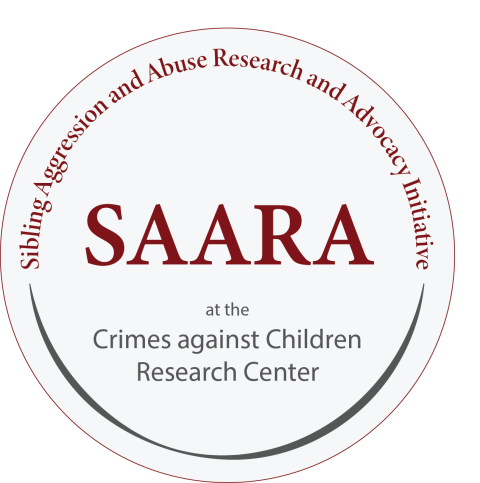
Sibling aggression is the most common form of family violence, yet it remains hidden and confused with sibling rivalry. Numerous studies have linked sibling aggression and abuse to worse mental and physical health and problematic interpersonal relationships with parents, peers, and romantic partners.
The Sibling Aggression and Abuse Research and Advocacy Initiative promotes awareness of sibling aggression and abuse and provides guidance on how to prevent and reduce their occurrences. This initiative grows out of calls for increased awareness of sibling victimization given its pervasiveness and harmfulness.
Latest from SAARA
When to be concerned about sibling sexual behavior: Troubling signs parents and professionals should look out for
Parents and professionals often overreact or underreact to apparent sibling sexual behavior. In this post on Psychology Today, SAARA researchers discuss how to identify harmful sexual behaviors between siblings. Read More
An opportunity to address the most common form of family violence: Sibling aggression
Given the prevalence and impacts of sibling aggression, parenting education is needed. Yet evidence-based parent education programs generally do not address it. In this article published in the National Council on Family Relations' Family Focus, SAARA researchers propose how such information could be infused into parent education programming. Read More
WWDMD? Sibling Abuse Series: A sibling abuse resource for support, advocacy, and change (Episode 65)
SAARA's Dr. Corinna Jenkins Tucker and Dr. Tanya Rouleau Whitworth were interviewed by Dr. Amy Meyers on her podcast, What Would Dr. Meyers Do?, about the difference between sibling aggression and abuse, the invisibility of sibling abuse, and SAARA's mission to create change. Listen on YouTube
SAARA Bulletins
- Do State Child Abuse and Neglect Policies Address Sibling Abuse? (SAARA Bulletin #6)
- Demographic Variation in Sibling Aggression and Abuse (SAARA Bulletin #5)
- What is the Line: When Does Sibling Conflict, Teasing, and Roughhousing Become Something More Serious? (SAARA Bulletin #4)
- Sibling Aggression and Abuse: Recommendations and Resources for Parents and Professionals (SAARA Bulletin #3)
- Recommendations for Parents on Managing Sibling Conflict and Aggression (SAARA Bulletin #2)
Contact Us
125 McConnell Hall
15 Academic Way
Durham, NH 03824
Email: UNH.SAARA@unh.edu
Phone: (603) 862-0936
Fax: (603) 862-1122
Twitter / X: @SAARAInitiative
Facebook: SAARA Initiative
Psychology Today: The Science of Siblings
Do you have a personal story of sibling aggression or abuse? Please consider sharing it with us anonymously through our story archive
